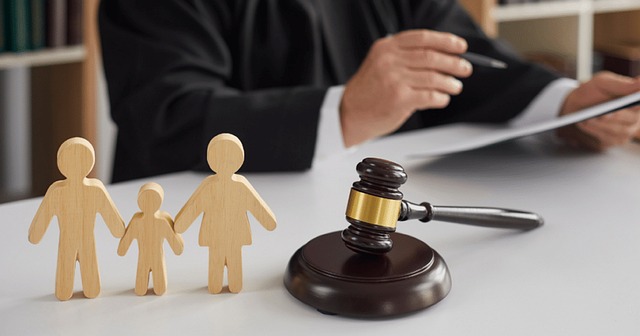What is litigation and how is it used in court

Litigation refers to the practice of using legal processes to resolve legal disputes between parties, particularly within a court system. In the United Kingdom (UK), litigation includes filing legal claims before courts of law to seek resolution or judgement on them – this acts as an official means of settling conflicts between them.
The litigation process in the UK typically comprises these steps
1. Pre-Action Stage: Before initiating formal litigation, parties can engage in pre-action correspondence, negotiation or alternative dispute resolution methods like mediation and arbitration to attempt to reach a mutually acceptable solution without court involvement. This stage aims to find non-court alternatives.
2. Filing a Claim Form: If the dispute can’t be settled out-of-court, the person initiating legal proceedings (the claimant) can submit a formal claim form that details all aspects of their dispute: its details, parties involved and relief sought.
3. Serving Your Claim: Once complete, the claim form and supporting documents are delivered to the defendant (those to whom it is made). They have a specific period to respond.
4. Defense and Counterclaims: A defendant may submit a defense to dispute the claimant’s allegations and present their version of events, while also raising counterclaims against them seeking relief in their own right.
5. Case Management: The court will monitor the progression of your case by setting timetables for various actions such as document disclosure, exchange of evidence and witness statements. Depending on your needs and situation, case management conferences or hearings may also be held to discuss procedural matters that arise during proceedings.
6. Trial: When cases move forward to trial, both parties present their arguments, evidence and witnesses in front of a judge or jury for examination by a court that examines this information in depth while listening to legal arguments before making its own ruling on whether to accept them or reject them outright.
7. Judgment: At this stage of proceedings, the court makes its ruling and awards appropriate remedies or damages to any successful parties in their lawsuits.
8. Enforcement: If the judgment in favor of the claimant, additional steps may need to be taken if the defendant does not comply voluntarily, including taking measures like seizing assets or garnishing wages to enforce it.
Litigation in the UK can be a complex and time-consuming process, yet provides a formal mechanism for settling legal disputes through court judgment. Parties involved often seek legal advice to navigate this process effectively.
Types of litigation
There are various forms of litigation that may occur across various fields of law. Here are some common types:
1. Civil Litigation: Civil litigation refers to any dispute between individuals, businesses or organizations that does not involve criminal charges. Civil litigation cases could include contract issues, personal injury claims, property disputes, employment conflicts and intellectual property infringement claims – just to name a few.
2. Commercial Litigation: Commercial litigation refers to legal disputes that arise within a business environment and can include issues like contract breaches, shareholder disagreements, partnership conflicts, breach of fiduciary duties, unfair competition and disputes related to transactions.
3. Criminal Litigation: Criminal litigation refers to cases in which the government, represented by its prosecution arm, accuses an individual or entity of breaking the law and charges them with criminal activities; those accused – known as defendants – could potentially face potential penalties such as fines, probation or imprisonment depending on their offense, which could range from minor misdemeanors up to serious felonies.
4. Family Law Litigation: Family law litigation encompasses any dispute related to family relationships, such as divorce, child custody and support arrangements, spousal support (alimony), property division or adoption. Such matters often require special knowledge.
5. Employment Litigation: Employment litigation encompasses disputes between employers and employees over issues like wrongful termination, discrimination, harassment, wage and hour violations, breach of contracts or workplace safety concerns.
6. Intellectual Property Litigation: Intellectual property litigation arises when disputes over the infringement, misappropriation, or unauthorized use of intellectual property rights arises – this may include patent infringement, trademark disputes, copyright infringement or trade secret violations.
7. Administrative Litigation: Administrative litigation refers to disputes between individuals or businesses and government agencies. These can involve challenging administrative decisions like license revocations, permit denials or regulatory enforcement actions taken against an individual or business.
8. Environmental Litigation: Environmental litigation encompasses legal matters regarding environmental regulations, pollution, toxic torts and cleanup issues. Such disputes often center around liability issues related to compliance with environmental laws as well as damages caused by environmental harm.
These are only some examples of litigation that may arise. Every area of law may have their own set of rules and procedures governing its litigation process.
Which court is my case going to?
To determine the court where your case should be heard, several factors need to be taken into account, including its nature, jurisdiction and any applicable laws that pertain. Although I can provide general guidance here, for accurate advice tailored specifically to your individual circumstances you should always seek legal advice from qualified legal professionals. Here is a general overview of UK court hierarchy:
1. County Court: The County Court handles an array of civil matters, from contract disputes and personal injury claims, landlord-tenant disagreements, debt recovery proceedings and family law issues to landlord-tenant issues and family law disputes. Typically its jurisdiction covers cases with lower financial values or simpler issues.
2. High Court: The High Court is comprised of three divisions, which include Queen’s Bench Division, Chancery Division and Family Division. These courts handle more complex and high-value civil cases; contract disputes, personal injury claims and defamation fall under Queen’s Bench. Meanwhile Chancery handles matters related to company law, bankruptcy proceedings, intellectual property protection and trusts while Family Division deals with family matters such as divorce and child custody proceedings.
3. Crown Court: The Crown Court handles serious criminal cases that require jury trials, such as those related to robbery, murder, rape or serious fraud. They can include cases such as robbery, murder and serious fraud as well as appeals from Magistrates’ Courts.
4. Magistrates’ Court: Magistrates’ courts specialize in less serious criminal offenses known as summary offenses as well as preliminary hearings for more serious offenses, and can hear civil matters like minor debt disputes and licensing issues.
5. Tribunals: Tribunals are specialized courts that specialize in specific fields of law, such as employment disputes, immigration appeals, tax matters or social security disputes. Each tribunal specializes in its own area and follows specific procedures to adjudicate them.
Your specific court of choice depends on the nature and complexity of your dispute, the amount at stake, and applicable laws. Seek legal advice when selecting the most suitable venue for your specific case.
The cost of litigation
Litigation costs vary considerably based on various factors, including case complexity, duration, legal representation choice and jurisdiction of litigation. Here are some expenses associated with litigation:
1. Legal Fees: Legal representation typically involves attorney fees that can vary based on the experience, reputation, and location of the lawyer in question. Fees can include an hourly rate or flat fee for specific tasks performed as well as contingency fees (a percentage of recovered amount if case successful).
2. Filing Fees: Filing fees may be required when initiating or filing documents with a court, and can vary depending on the nature and venue of your case.
3. Expert Witness Fees: Expert witnesses may be needed for specific areas of knowledge or opinions in certain instances. Depending on their qualifications and expertise, expert witness fees can vary significantly.
4. Discovery Costs: Discovery is the practice of gathering evidence and information relevant to a case, including document production, depositions, interrogatories, expert reports, expert witness testimony etc. It may include document review fees as well as deposition costs or hiring court reporters which can add up quickly.
5. Court Reporting and Transcription Services: When court proceedings need to be transcribed, court reporters or transcription services could become an expense.
6. Expert Reports: If expert witnesses are present, their reports must be prepared. There may be costs associated with their production.
7. Mediation or Alternative Dispute Resolution (ADR) Costs: When seeking to resolve their dispute through mediation or ADR methods, fees associated with mediators or processes chosen can apply.
8. Travel and Accommodation: Litigation cases that require attending hearings, depositions, meetings in different locations can incur expenses related to travel, accommodation, meals and expenses associated with attending such proceedings.
Litigation costs can quickly add up, leaving parties wondering about their financial implications. Sometimes the losing party may have to cover some or all of the winning side’s legal costs; in other instances they may not. Before embarking on litigation proceedings it is advisable to discuss potential costs and fee structures with your lawyer so you have an accurate picture of potential costs and implications.
